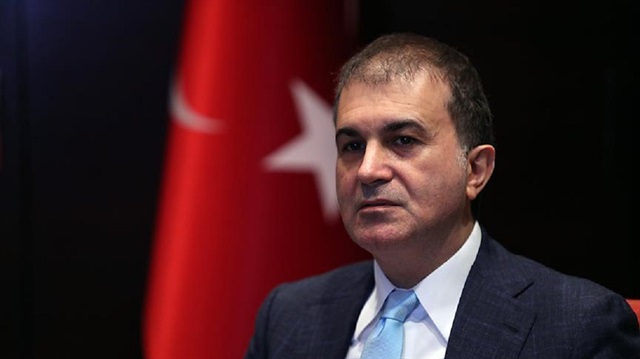
Turkey's EU Minister Omer Celik accuses Austria of flouting EU values in decision to shutter 7 mosques, expel 40 imams
Turkey's EU Ministry will not visit Austria before or during its upcoming EU Presidency, in protest of its decision last week to shut down seven mosques, Turkey's EU Minister said on Monday.
Due to its decision, including the expulsion of 40 imams, Turkey will ignore Austria’s six-month turn at the EU helm, set to start on July 1, Omer Celik told news channel Haber Turk.
“The Austrian government is a bomb ready to explode for the future of the Europe," Celik said of the decision.
Celik stressed: "Austria does not have an approach that represents EU values. In addition, Turkey will take serious steps against Austria’s decision."
Accusing Austrian Chancellor Sebastian Kurz of adopting far-right rhetoric, Celik said: “He is not taken seriously in Europe.”
“There was a wish to normalize relations with Austria, but at this point, the Austrian chancellor became a representative of Islamophobia and racism,” Celik said.
Kurz said last week the move came as part of a crackdown on so-called "political Islam."
Under the move, seven mosques are to be shut down -- one of them belonging to the Turkish-Islamic Cultural Association (ATIB) -- and 40 imams expelled on the grounds of being foreign funded.
In 2015, when Kurz was minister for Europe, integration and foreign affairs, he backed Austria’s “law on Islam” (Islamgesetz) -- legislation that, among other things, banned the foreign funding of mosques and imams. The controversial law was intended to develop an Islam of “European character,” according to Kurz.
“We act decisively and actively against undesirable developments and the formation of parallel societies -- and will continue to do so if there are violations of the law on Islam,” Kurz wrote on Twitter.
- Fugitive soldiers in Greece
On the Turkish soldiers who fled to Greece, accused of involvement in the 2016 defeated coup by the Fetullah Terrorist Group (FETO), Celik said: "Greece has become a country that protects coup-plotters. These plotters are the enemies of Turkey."
"The protection of these coup-plotters is an issue which will always be remembered as a central point in Turkish-Greek relations," Celik stressed.
In January, the Greek Supreme Court ruled against extraditing the former soldiers -- a move Turkey called "politically motivated".
Turkey has repeatedly called for the extradition of the suspected coup-plotters, including during President Recep Tayyip Erdogan's official visit to Greece last December.
The soldiers arrived in Greece’s Western Thrace region aboard a stolen military helicopter hours after the defeated coup of July 15, 2016.



